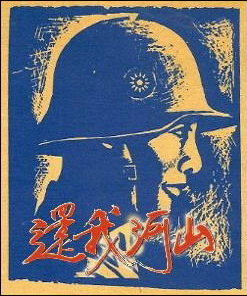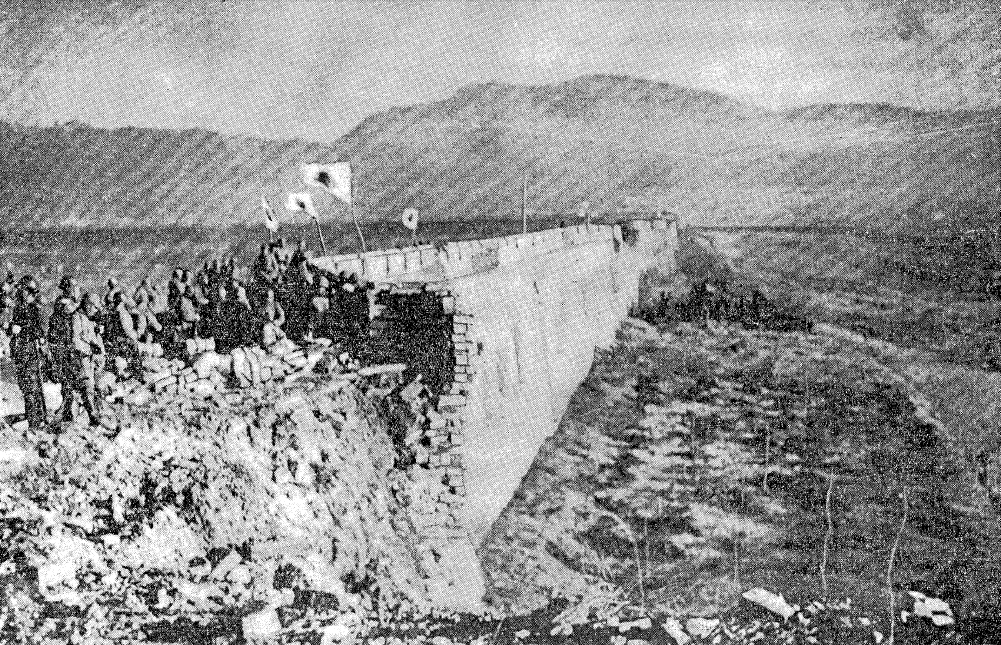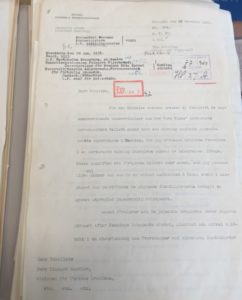The Nanjing Massacre: A Swedish Diplomat Reports (Part One)
- By Peter Harmsen
- 8 July, 2019
- 1 Comment
In December 1937, the Japanese Army captured the Chinese capital of Nanjing and immediately imposed a complete news blackout of events in the city. As a result, the outside world only received scattered information about the massacre of prisoners and civilians that took place both in the city and in the countryside outside its ancient walls.
One of the foreign observers alerted to the gruesome events was Sweden’s envoy to China, Johan Beck-Friis, who was stationed in Shanghai, 200 miles to the east. In three detailed reports to the Foreign Ministry in Stockholm, he described the situation in Nanjing, based on what his sources were able to tell him.
The reports are now located in the National Archives in Stockholm and are made public here for the first time ever in an English version. This is the first in a series of three.
Letter from Johan Beck-Friis, Swedish envoy to China, to Swedish Foreign Minister Rickard Sandler, December 24, 1937
Mr. Minister
In case the Swedish press has not reported the sensational information that The New York Times’ correspondent here Hallett Abend has sent to his newspaper regarding Japanese behavior in Nanjing, I herewith provide excerpts from the article published in a local newspaper. This information deserves to be believed, since Abend, whom I know personally and who is a recognized authority in China, has adopted a rather pro-Japanese point of view, generally as well as in respect to the ongoing hostilities.
Abend explains that in the days just after the conquest of Nanjing, the Japanese troops committed murder, plunder and rape to an extent that exceeds what local bandits have allowed themselves to do in the past. Atrocities, which are impossible to reproduce in print, have according to Abend reduced the entry into Nanjing to a blot on the [Japanese] nation’s honor. He concludes his account by saying that as long as Japan represented law, order and justice, even if meted out in a rough manner, much could be said in favor of Japan’s measures in China, but he adds that after the events in Nanjing both Chinese and foreign proponents of Japan’s policy on the continent have been shocked.
Abend’s information corresponds with what we know from other sources. For example, I had a conversation myself yesterday with an Italian journalist who left Nanjing the day before the Japanese occupied the city but has received reports directly from the city. He confirmed that atrocities have been committed. To explain the mass murder of the civilian population, he mentioned the Japanese fear of assassination. That was the reason why the Japanese executed every man capable of holding a gun, he said. When I asked if it was correct that 50,000 people had been killed in the days after the conquest, he answered that “only” 15,000 to 20,000 people had been murdered. I can add that this source is an eager Fascist and enthusiastically pro-Japanese.
In this connection it must be mentioned that out of the 10 million people believed to live in the area between Shanghai and Nanjing, at least 8 million have fled their homes. For example, after the conquest of Suzhou, the Japanese said they only found 500 people out of the 200,000 who normally live there. It is impossible to say if the survivors were executed or not. But in the whole area between Shanghai and Nanjing it seems that almost no one is left and most of the houses have been destroyed. Officially the Japanese have encouraged the residents to return to Nanjing and the other occupied areas, but the civilian population knows about the mass murder and atrocities and show little inclination to obey.
It seems that with the capture of Nanjing, Japan missed an opportunity to reinstate order and thus gain a certain level of sympathy. It also appears that the incredible atrocities have belied that constant Japanese claims that they fight only against the Chinese government and are the friends of the Chinese people.
Sincerely,
Johan Beck-Friis





 Copyright © 2024
Copyright © 2024
Gee, the New York Times on the side of the bad guys. There’s a shocker. It’s like when they won a Pulitzer Prize for covering up the Holodomor.